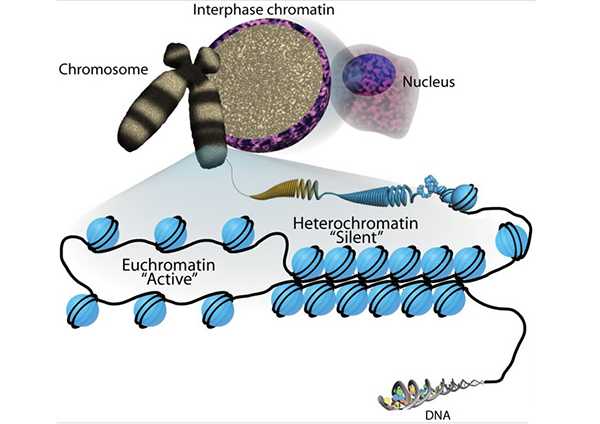Scientists at Vanderbilt University say they have discovered a nongenetic cause of resistance to cetuximab, a therapeutic that is used to treat advanced colorectal cancer. The team’s study (“lncRNA MIR100HG-Derived miR-100 and miR-125b Mediate Cetuximab Resistance via Wnt/β-Catenin Signaling”), which is published in Nature Medicine, suggests a novel strategy for overcoming this resistance.
“Using whole-exome sequencing and transcriptional profiling, we found that the long non-coding RNA MIR100HG and two embedded microRNAs, miR-100 and miR-125b, were overexpressed in the absence of known genetic events linked to cetuximab resistance. MIR100HG, miR-100 and miR-125b overexpression was also observed in cetuximab-resistant colorectal cancer and head and neck squamous cell cancer cell lines and in tumors from colorectal cancer patients that progressed on cetuximab,” write the investigators.
“miR-100 and miR-125b coordinately repressed five Wnt/β-catenin negative regulators, resulting in increased Wnt signaling, and Wnt inhibition in cetuximab-resistant cells restored cetuximab responsiveness. Our results describe a double-negative feedback loop between MIR100HG and the transcription factor GATA6, whereby GATA6 represses MIR100HG, but this repression is relieved by miR-125b targeting of GATA6. These findings identify a clinically actionable, epigenetic cause of cetuximab resistance.”
“It's sort of like we've all been looking under the lightpost—we look at genes, and we find mutations,” said Robert Coffey, Jr., M.D., Ingram Professor of Cancer Research and senior author of the current study. “What we found is that there is another form of resistance. It's not due to mutations in genes; it's an epigenetic mode of drug resistance.”
Dr. Coffey and his colleagues used a 3D cell culture system they developed to grow colon cancer cells, which were initially sensitive to cetuximab. After four months of cetuximab exposure, colonies of resistant cells grew in the culture system.
The researchers evaluated the cells for gene mutations linked to cetuximab resistance, but they didn't find any.
“Once we had excluded all known genetic causes of resistance, we figured something interesting was happening, and that led us to dig deeper,” said Dr. Coffey, who is also professor of medicine and cell and developmental biology and director of the Epithelial Biology Center.
As noted in their paper, the researchers found increased expression of a long noncoding RNA called MIR100HG, which houses two microRNAs, miR-100 and miR-125b, that also had increased expression. Long noncoding RNAs and microRNAs are transcribed from the genome just like genes, but they do not encode proteins. Instead, these pieces of RNA coordinate complex epigenetic processes to regulate gene expression.
Dr. Coffey and his colleagues discovered that miR-100 and miR-125b collectively suppressed the expression of five different genes that are negative regulators of the Wnt signaling pathway. Removing these miRNAs led to increased Wnt signaling, which is known to promote cell proliferation.
When the investigators blocked Wnt signaling using both genetic and pharmacologic inhibitors, they were able to restore responsiveness to cetuximab in cultured colon cancer cells and in colorectal tumors in mice.
The researchers also examined tumor samples from patients with colorectal cancer who received cetuximab therapy and developed resistance to it. They found increased MIR100HG, miR-100, and miR-125b in six out of 10 patients. Tumors from two of the six patients also had genetic mutations. “We found that genetic and epigenetic resistance mechanisms can co-occur,” said Dr. Coffey.
The same epigenetic mechanisms also were present in other colon cancer cell lines and in head and neck cancer cell lines with both intrinsic and acquired resistance.
The findings suggest that epigenetic regulation to increase Wnt signaling may be a general mechanism cancer cells use to overcome therapeutic blockade of epidermal growth factor receptor (EGFR) signaling, say the scientists.
For patients who are eligible for cetuximab (they're not already resistant because of known genetic mutations), it could be worthwhile to evaluate expression of MIR100HG and if it's elevated, to block Wnt signaling, explained Dr. Coffey, who adds that “Right now there aren't great drugs available to block Wnt signaling, but there are trials underway with a slew of different Wnt inhibitors. Ultimately, we could imagine giving cetuximab with a drug that would block Wnt to enhance the activity of cetuximab or to prevent the emergence of resistance.”
He and his colleagues are using the 3D culture system to explore mechanisms of drug resistance in other colon cancer cell lines. They are also developing ways to introduce selective blockers of microRNAs (“antagomiRs”), and their preliminary data suggest this strategy may confer cetuximab sensitivity to colon cancer cell lines with KRAS mutations.


